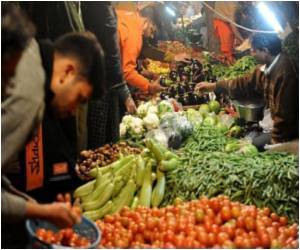Women with high vegetable intake are less likely to develop estrogen receptor-negative breast cancer than women with low vegetable intake, scientists have said.

The investigators followed 51,928 participants for 12 years, during which time 1,268 cases of breast cancer developed.
Among cases on which hormone receptor status was obtained, 35 percent were estrogen receptor-negative/progesterone receptor-negative breast cancers.
The incidence of breast cancer was 43 percent lower among women consuming at least two vegetables per day compared with women who ate fewer than four vegetables per week.
According to the BUSM researchers, specific types of vegetables may play a greater role in reducing breast cancer risk. The investigators reported that high intake of cruciferous vegetables in particular may be associated with reduced risk of breast cancer overall.
Cruciferous vegetables, which include broccoli, mustard and collard greens, and cabbage, are sources of glucosinolates, which may play a role in preventing the development of breast cancer through their effects on both estrogen metabolism and detoxification enzymes.
Advertisement
Carrots are rich sources of carotenoids, which may reduce cancer risk through their antioxidant properties.
Advertisement
Source-ANI















